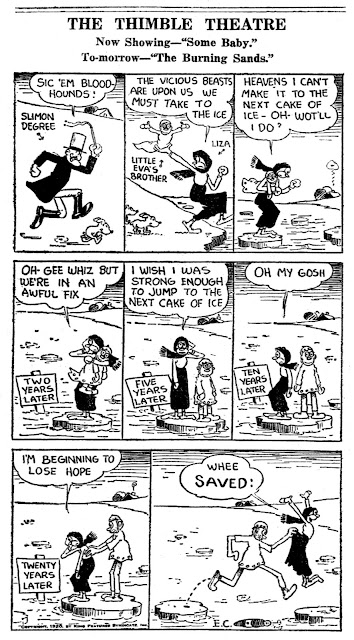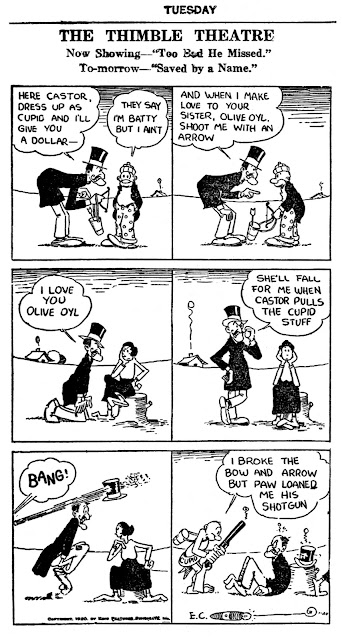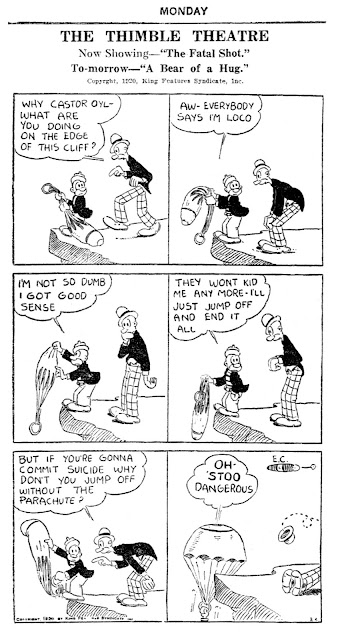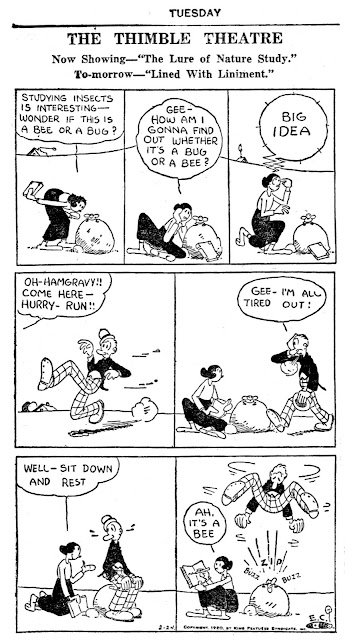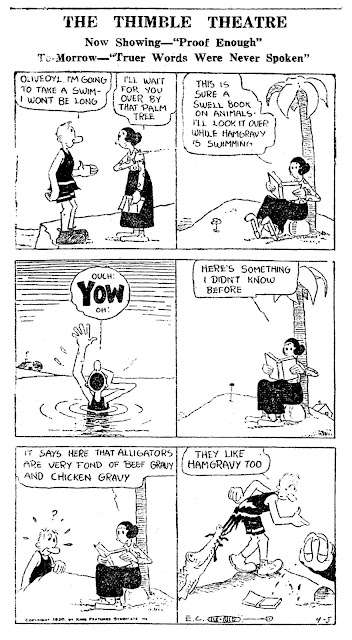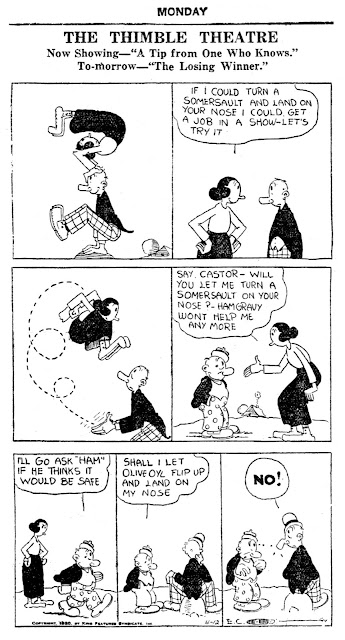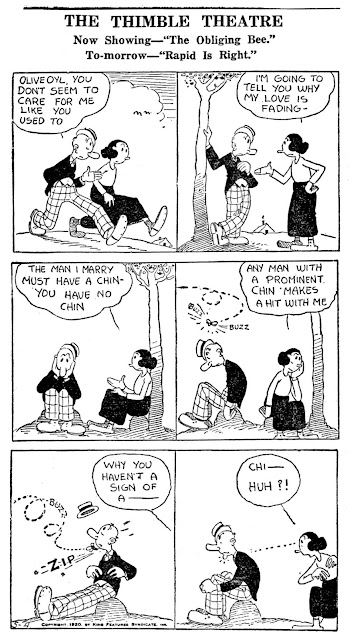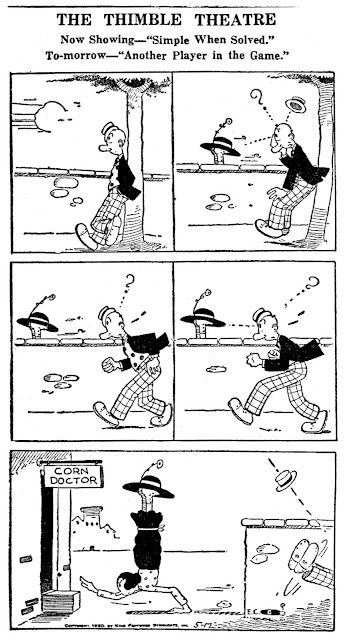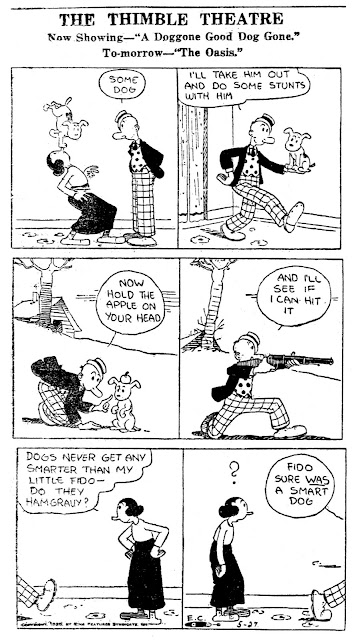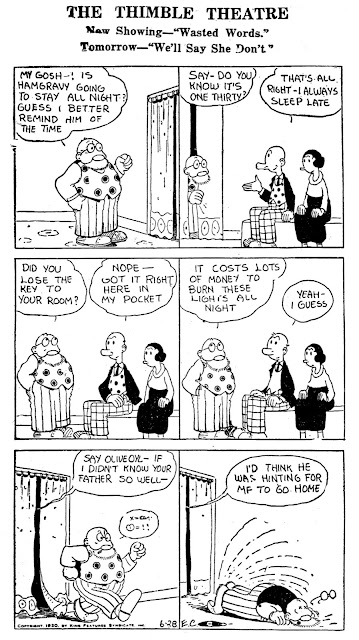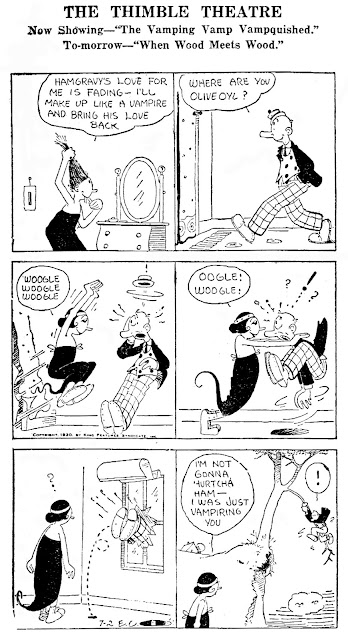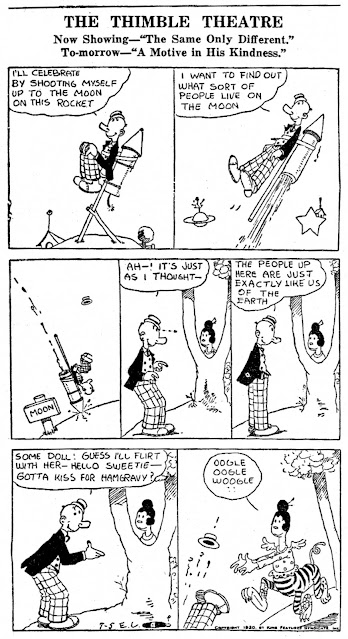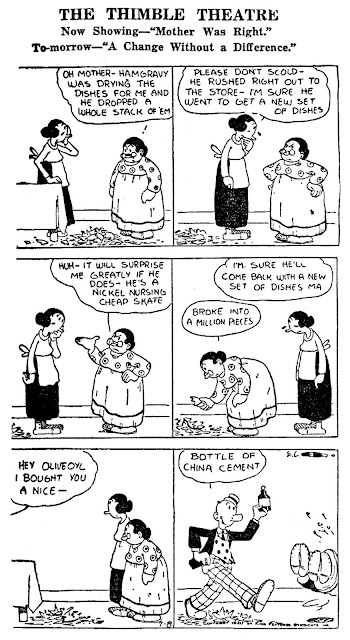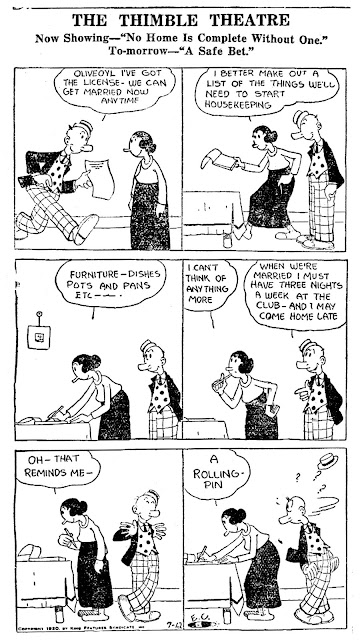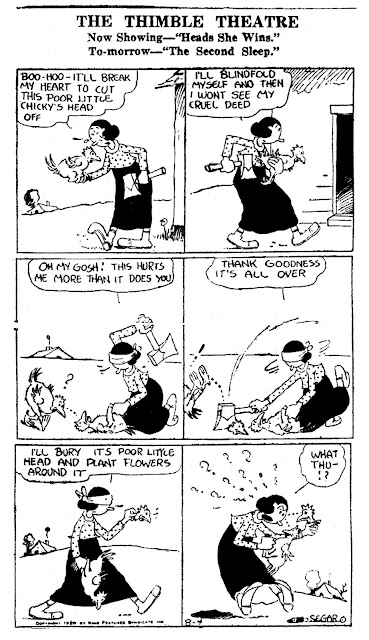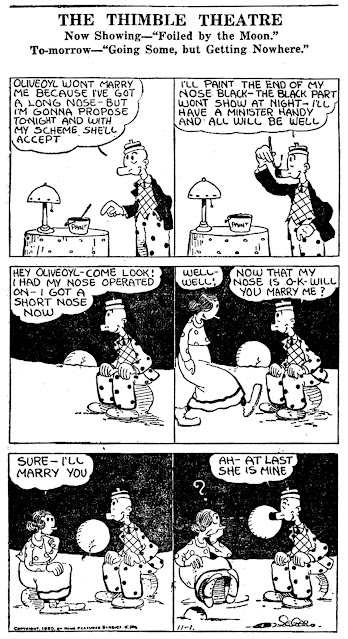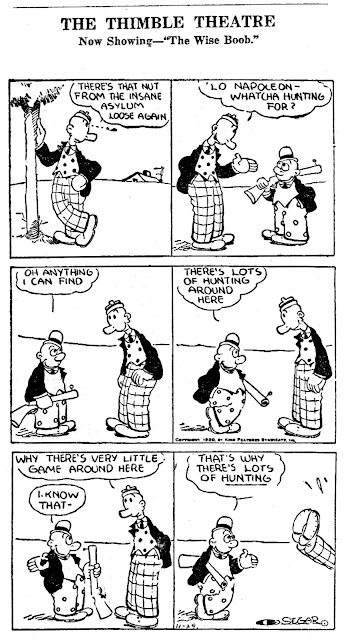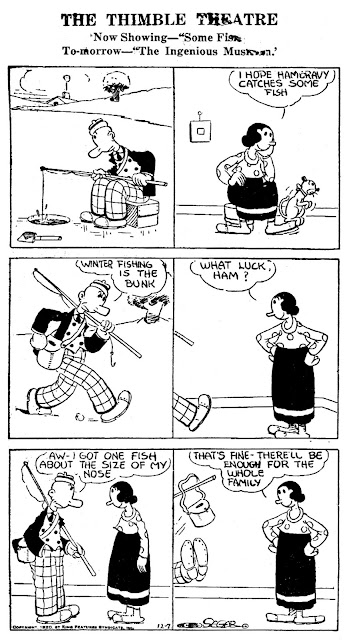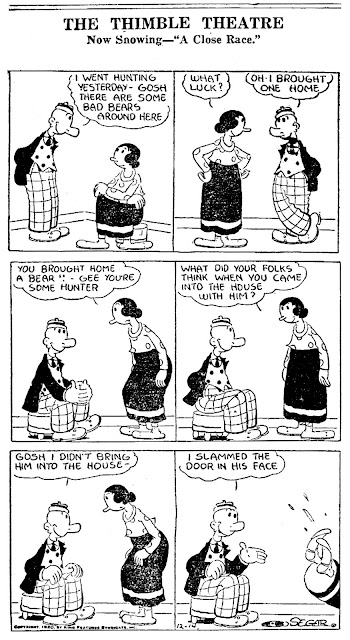It's no secret that I love comic strips. They were my first love, well before I even knew of the existence of comic books. As documented occasionally on this blog, the Sunday comics section of the NEW YORK SUNDAY NEWS was one of the bibles of my childhood and I've been successful in saving every section for 50 years now, half of the century total (and another 25 years worth before that!). I've posted several articles to this blog featuring histories of both the NY Sunday News Comics as well as the newspaper itself. In fact, I moderate a Facebook group devoted to those very things, The New York Sunday News Comics History Group.
It's also no secret that I love animated cartoons. The TV airwaves of the late 1960's into early 1970's were filled with vintage cartoon programming, the likes not seen again even in this 24/7 cable and streaming world. Hour after hour of shows compiling the great Warner Bros. shorts, as well as MGM Studios, Terrytoons, the Walter Lantz studio, George Pal Puppetoons ... and Popeye. Popeye was definitely my favorite (along with the Warner Bros.shorts) . There were three types of Popeye cartoons to my 7 year old discerning eye. There were the color cartoons that were terrible, there were the color cartoons that were good, and there were the black and white cartoons that were the greatest! The color cartoons that were bad were made for television and while the voices seemed about right, the action was stilted and dull (and who the heck was "Brutus?") The color cartoons that were good were very good seemed to evolve from the earlier black and white cartoons that were great, the latter of which I would later learn were the output of the wonderful Max Fleischer Studio.
*** [Unfortunately, Walt Disney cartoons were seemingly only the property of NBC's Wonderful World of Disney, and were not in any sort of daily permeation into the minds of children in New York. Yes Mickey, Donald, Goofy, et al, were great, the feature animated films were great, but they did not worm into children's minds as the daily permeation of the others had. To this day I think Disney shot themselves in the foot by limiting children's access to those cartoon shorts on television] ***
Those black and white Popeye cartoons looked and sounded "old". The music was jazzy, the fashions were strange, the depictions were frenetic. Hell, they literally "bounced!" And boy, were they violent, which was why I loved them! Generally, they appeared on children's shows hosted by the likes of Officer Joe Bolton, Chuck McCann, Soupy Sales and/or Captain Jack McCarty, on independent station WPIX channel 11 (the original channel of the NY Daily News and home of the NY Yankees) or also WOR channel 9 (the home of the NY Mets).
When I got older, having all the right textbooks as a teenager (Maurice Horn's The World Encyclopedia of Comics and The Smithsonian Collection of Newspaper Comics) I learned that Popeye actually first appeared in the comic strip Thimble Theatre on January 17, 1929 by cartoonist Elzie Segar, the last name of which I recognized in the credits of the earliest black and white Max Fleischer cartoons. And a bit later, I learned that Popeye appeared 10 years into Segar's Thimble Theatre strip, a feature that began on December 19, 1919. Wow! Imagine that! There was 10 years of Thimble Theatre before Popeye even appeared! What were those strips? I had no idea and probably thought I'd never, ever, see them.
In 1984 my long-simmering Thimble Theatre obsession was happily greeted with the publication by Fantagraphics Books of The Complete E.C. Segar Popeye in 11 volumes, first 4 volumes of the Sunday pages, which began in 1930, and then 7 volumes of the daily strips, which they began on July 20, 1928, in order to start the book at the beginning of a new story, a great adventure starring Ham Gravy, Castor Oyl and the Wiffle Hen, leading up to the introduction of Popeye in January of 1929. This series, published in both hard cover and softcover (both versions of which I acquired) was edited by the great Rick Marschall and only further stoked my desire to see as much of the pre-Popeye Thimble Theatre as could be found. It was the very first time I had ever seen several months of the strip predating the appearance of Popeye.
Vol 1-4 Sundays (softcover)


Vol 5 Dailies (1928-1929) (softcover)
Vol 6 Dailies (1930-1931) (softcover)
Vol 7 Dailies (1931-1932) (softcover)
Vol 8 Dailies (1932-1934) (softcover)
Vol 9 Dailies (1934-1935) (softcover)
Vol 11 Dailies (1937-1938) (softcover) (which strangely lacked text on the spine!)
The hardcover volumes had a steel-blue cover, samples below.....
Vol 1 Sundays (1930-1932) (hardcover)
Vol 5 Dailies (1928-1929) (hardcover)
Being finally able to read the entire run of the strip, E.C. Segar's Popeye was a masterpiece of comic strip brilliance, a cornucopia of wild characterizations and misadventures living in a surrealistic world of Segar's imagination. At the start of the first Popeye story the lead character was obviously the blusterous Castor Oyl, a mighty bastion of short-statured, pure indignation. It was interesting, yet sad to see Castor slowly phased into the background (and Ham Gravy pretty much vanishing) as Popeye rose to both prominence and dominance in the strip. I became a big Castor Oyl fan, and eager to go back through the years and see Castor's adventures throughout the 1920's. But this was not to be. There was seemingly no source for these strips and although classic strip reprints were promulgating all over the bookstores, no publisher seemed to have the desire to tackle the pre-Popeye Thimble Theatre.
Finally in the October, 2005 issue of The Comics Journal (#271) an entire Thimble Theatre Castor Oyl adventure lasting six months from March 17, 1928 to September 8, 1928 was reprinted, previewed by an introduction by Bill Blackbeard, "A Neat Case of Castor Oyl".

Closer and closer.....
In 2018 Peter Maresca's Sunday Press published "Thimble Theatre, The Pre-Popeye Comics of E.C. Segar" and I was in heaven! No, it wasn't a complete, sequential reprinting of the strips, but rather a "best of" collection of the grandest Sunday pages of Castor Oyl, Olive Oyl and Ham Gravy between 1925 (including the very first Sunday page) and 1930. Included are incredible artifacts from Segar's pre-Thimble Theatre's work in earlier comic strips in the early part of the century as well as biographical material and historical context. It's a wonderful package of oversized sequential art brilliance.
Will we ever see the "complete" Elzie Segar's pre-Popeye Thimble Theatre compiled? I don't know, but hope springs eternal. Now on to the subject of this blog post....
About 18 years ago an online friend sent me 2 CDs with the first 2 years of Thimble Theatre. They were high resolution scans taken from material acquired from Bill Blackbeard at the San Francisco Academy of Comic Art, and the quality was excellent. I was in heaven as I finally saw how this strip started, as an ensemble joke-a-day parody of the theatre, featuring Olive Oyl and Ham Gravy. In fact, Olive Oyl appears in the very first entry, December 19, 1919. I printed out the strips into a binder, placed the files in a folder on a back-up drive, and subsequently forgot about them for 2 decades. Recently, my pal Ger Apeldoorn, curator of the terrific comics strip blog "The Fabulous Fifties", began posting Thimble Theatre strips to Tom Heintjes' Hogan's Alley Facebook group and it jogged my memory of my strips. I tracked them down in that old back-up drive and decided to collate them all in one place, right here. I made some online inquiries looking to give credit to whoever it was that originally sent them to me (as I had forgotten who) and it turns out it was Bruce Rosenberger. So thanks, Bruce!
Below is the very dawn of Thimble Theatre, the end of 1919 and the entire year of 1920. Missing from the collection is a single daily strip that I will add when I can find a decent source. If anyone can add it, I'd be eternally grateful!
Missing:
9/24/20 3/4/20, 3/26/20, 3/27/20, 3/29/20, 3/30/20, 3/31/20,
***[ 8/28/21 addendum ....Thanks to reader Charles Anders, 6 of the 7 missing strips I originally needed were supplied from his collection! Thanks, Charles!]***
1919
12-20-1919
12-22-1919
12-23-1919
12-24-1919
- All Thimble Theatre daily strips are from the collection of Bruce Rosenberger
- Images of Fantagraphic Books collections from the author's collection.
- Bill Blackbeard's Comics Journal #271 (Oct/05) article used with permission of Fantagraphics Books
- Thimble Theatre Popeye original art dailies at top of page from the author's collection
- 6 missing strips 3/4/20, 3/26/20, 3/27/29, 3/29/20, 3/30/20, 3/31/20 are from the collection of Charles Anders. His generosity is much appreciated.











































